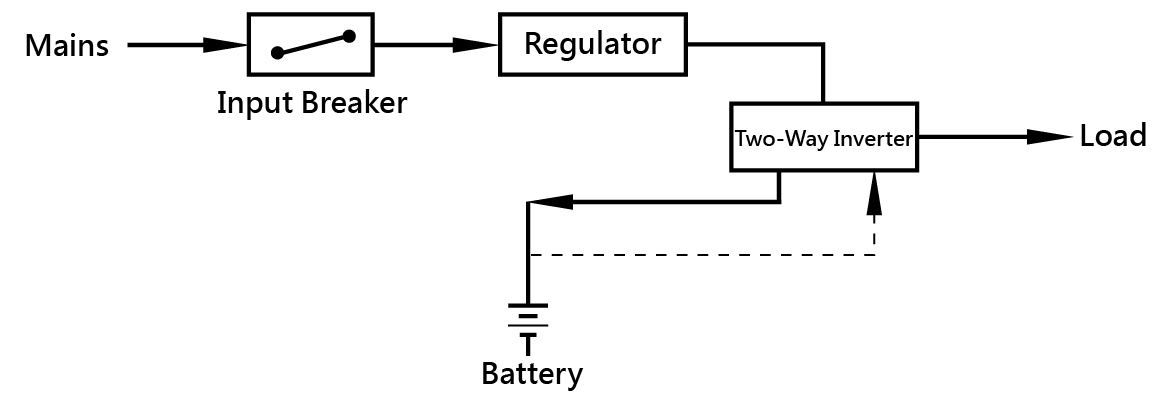|
TYPES AND FEATURES OF UPS
OFF-LINE UPS AND LINE INTERACTIVE UPS:
Under the condition of the utility input normally (The range of the utility is
about AC160V ~ AC270V), the utility will be regulated by the voltage regulator,
and then feeds the load. The frequency stability is not high and the
interference from the grid will affect the output quality of UPS. Only if the
utility is too high / low or interrupted, the inverter begins to run to feed the
load. So the transfer time will be about 2 ~ 4ms. |

Fig. 1 Off-line UPS Block-Diagram |

Fig. 2 Line Interactive UPS Block-Diagram |
ON-LINE UPS:
Under the condition of the utility input normally, the utility will be rectified and flitted during the course of AC to DC and changed to DC power, at the same time; the rectifier will charge the battery. The DC power output from the rectifier will be changed to AC power to feed the load during the course of DC to AC by the inverter. Being compared with the output quality of the off-line UPS and line interactive UPS, the output quality of the on-line UPS is very pure and reliable. If the utility is abnormal, the battery will feed the inverter instead of the rectifier. The output of the on-line UPS has no interruption and the transfer time is 0ms. |

Fig. 3 On-line UPS Block-Diagram |
| After analyzing the UPS types and features, we can find that the output quality of the off-line and line interactive UPS is lower than the output quality of the on-line UPS. And the output wave form of the off-line UPS is almost square wave; the ability to handle the Inductive load is low. So the off-line UPS and line interactive UPS are mostly used in personnel computer or personnel office equipment and the mini server and so on. The transfer time of the on-line UPS is zero and the output quality is very high, so the on-line UPS is mostly used to feed the important load. The UPS with the different structures have the different abilities to handle the interference from the grid. We suggest the users choose the suitable UPS according to their different requests. |
|